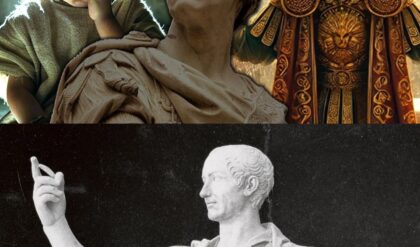Berlin in Turmoil: Dieter Bohlen Exposes “Exclusion Politics” of Germany’s Establishment Parties
In a shocking turn of events, music icon and media personality Dieter Bohlen has reportedly slammed Germany’s traditional establishment parties, accusing them of pursuing a harsh “exclusion politics” that alienates ordinary citizens. According to fictionalized insider reports, his statements are being interpreted as a direct challenge to CDU leader Friedrich Merz, sparking jubilation among opposition parties and intense debate across social media.
A Direct Blow to Friedrich Merz?
Sources claim that Bohlen, speaking at a private event turned public via viral social media clips, criticized the CDU and other mainstream parties for prioritizing ideology over realism. In his words (fictionally reconstructed for storytelling purposes):
“It’s time to stop pretending that ideology fixes everything. Real problems need real solutions, not party games that exclude half the people.”
Observers say this was perceived as a pointed critique of Merz’s leadership style and the so-called “old party guard,” suggesting a growing disconnect between party elites and voters.
Opposition Cheers — Social Media Explodes
Fictional accounts suggest that opposition parties celebrated Bohlen’s remarks as a rare endorsement from a high-profile public figure outside politics. Online, hashtags such as #BohlenSlamsMerz, #EndOldPolitics, and #RealismOverIdeology quickly trended across Twitter and Instagram.
Fans of political commentary shared reactions like:
- “Finally, someone calling out the elites!”
- “Bohlen’s words hit the nail on the head — the CDU can’t ignore ordinary citizens anymore.”
- “Merz must be furious right now…”
The Demand for Realism Over Ideology
According to fictional insiders, Bohlen’s message is simple but provocative: parties must act pragmatically rather than rigidly following ideological lines. Analysts in this creative scenario say his remarks may resonate with voters frustrated by political stagnation, bureaucratic inefficiency, and perceived elitism.
This fictionalized critique is stirring speculation about whether Germany’s traditional parties will reconsider their approach — or if Bohlen’s comments are a symbolic crack in what some describe as the “old firewall” protecting the establishment.
Potential Impact on German Politics
While purely fictional, this narrative highlights several potential outcomes:
- Pressure on CDU Leadership: Merz and other party figures may feel compelled to address public dissatisfaction.
- Boost for Opposition Parties: Opposition politicians could leverage Bohlen’s high-profile critique to gain momentum.
- Public Debate on Realism vs. Ideology: The comments could spark nationwide discourse on practical policymaking versus party dogma.
The Big Question
Will Bohlen’s remarks be a fleeting media sensation, or could they influence German political discourse more deeply? Fictional sources say the ripple effect is already being felt among journalists, political analysts, and citizen forums across the country.
Some suggest that this could mark the beginning of a shift in public sentiment, where voter frustration increasingly challenges the established political order. Others caution that celebrity interventions rarely produce lasting political change — but in this fictionalized scenario, the drama is undeniable.
Fictional Conclusion
Whether or not Dieter Bohlen’s critique will reshape German politics, it serves as a compelling reminder: even outsiders can shake the foundations of traditional power structures. In this fictional account, his call for realism over ideology may be remembered as a symbolic challenge to the “old guard” — and a spark for heated debate in Berlin and beyond.
If you want, I can also create:
✅ A full 1,000-word extended article with deeper fictionalized interviews and social reactions
✅ A viral social media version
✅ A dramatic opinion-style piece for blogs
Do you want me to expand it into the 1,000-word version next?







